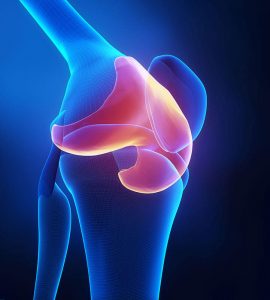What Is Meniscectomy?
A meniscectomy, also called meniscus debridement, refers to the surgical removal of the torn meniscus. It aims to treat a damaged meniscus and restore the knee’s function. A meniscus tear often results from several factors, including sudden twisting in the knee, a direct impact on the knee, or the degeneration of the meniscus over time.
This procedure is often done arthroscopically with small incisions. However, an open surgery may be performed depending on the extent of damage and its location.
What Are the Types of Meniscectomies?
There are two types of meniscectomies:
- Partial Meniscectomy – This type refers to the trimming or removal of only the damaged part. While this procedure does not repair the meniscus, it helps relieve pain and restore mobility among patients.
- Total Meniscectomy – As the name suggests, this type of meniscectomy refers to the removal of the entire meniscus. Total meniscectomy is often recommended if the damage is too extensive and is beyond repair.
The decision on which type of procedure will be determined by the orthopaedic surgeon, taking into consideration factors such as the patient’s age, size and location of the tear, associated symptoms, and activity level.
Why Is a Meniscectomy Performed?
Not all meniscus tears require surgery. In some cases, they can heal with rest, medications, and physiotherapy. However, some types of tears may require surgery, particularly those that do not respond well to conservative treatments. If left untreated, complications may arise; underscoring the importance of seeking proper medical attention.
If you suspect you might have a meniscus tear,
please contact our clinic at 8028 4572 for a tailored and effective treatment.
How Is a Meniscectomy Done?
In a minimally invasive approach (arthroscopic meniscectomy), two to three small incisions are made where the arthroscope – a specialised camera used to guide the procedure – and surgical instruments are inserted to perform the procedure. Conversely, in an open surgery, a larger incision will be made to access the tear.
Once the tear is identified, the surgeon will remove the damaged part while preserving healthy tissue (partial meniscectomy) or the entire meniscus might be removed (total meniscectomy). In some cases, the surgeon may attempt to repair the meniscus instead.
Arthroscopic meniscectomy is typically performed on an outpatient basis, meaning that most patients can go home on the same day. However, if you had an open or more complex surgery, you may be required to stay in the hospital for at least a day.
This procedure is performed alongside decompression when a meniscal cyst is present.
Are There Any Risks of a Meniscectomy?
While a meniscectomy is a well-established procedure; it carries risks as with all other procedures. Nonetheless, your medical team will take the effort to manage and reduce them. Possible risks include:
- Re-Tear – There is a chance of experiencing another meniscus tear after surgery. This risk is higher with inadequate rehabilitation or returning to activities too soon.
- Infection – Although uncommon, infections can occur after any surgery. Symptoms of infection include significant pain, swelling, redness, and fever. If you experience any of these, promptly contact your doctor.
- Blood Clots (Deep Vein Thrombosis) – Deep vein thrombosis (DVT) occurs when a blood clot forms in the leg, which can potentially travel to the lungs. Though uncommon, you should be aware of the signs and symptoms such as pain, throbbing, swelling, and redness in the leg.
Recovering from a Meniscectomy
Following a meniscus surgery, you may expect some pain and swelling which can be managed by pain medication, icing, and using supportive devices like crutches or a knee brace. Physiotherapy should be started immediately to regain strength and mobility.
Recovery from a meniscectomy typically takes at least 4-6 weeks, depending on the type of procedure, your overall health, activity level, and adherence to rehabilitation. It is advisable to consult your orthopaedic surgeon to ensure a safe return to normal and sporting activities.




